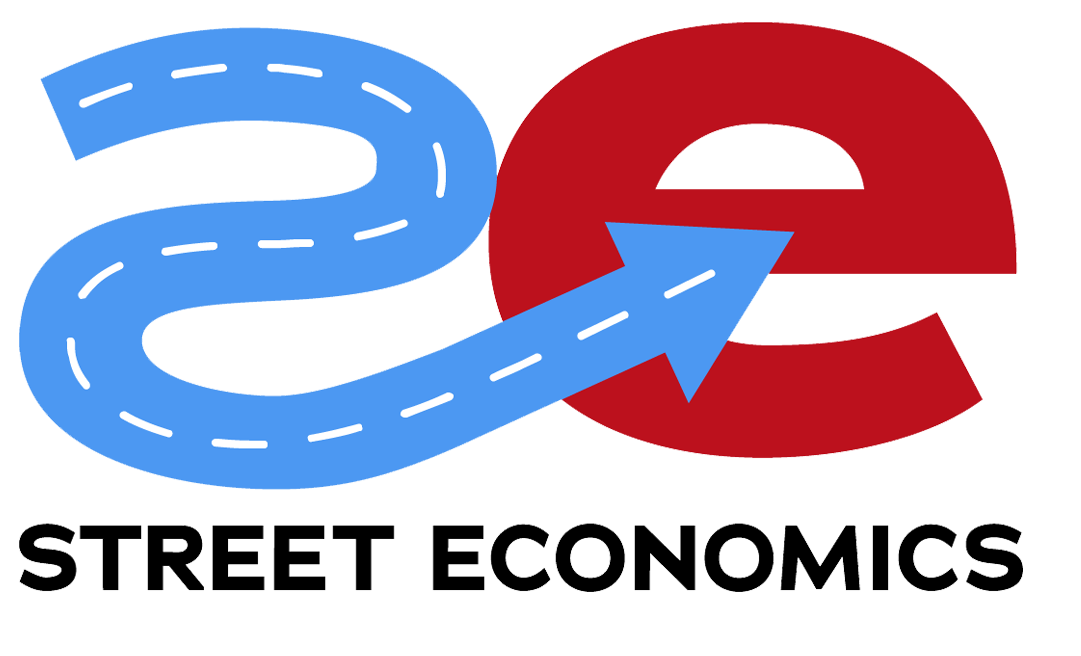Good Morning! Gimme Chocolate, Gimme Economic Development – Let’s Mosh Through Today’s Municipal Metal Madness
BusinessFlare Take
WEALTHY MIGRATION DRIVES RETAIL SURGE IN WEST PALM BEACH SINCE PANDEMIC West Palm Beach’s commercial real estate explosion offers a masterclass in how wealthy migration creates economic ripple effects that most cities completely fail to capitalize on. The influx of financial and tech executives fleeing high-tax states has driven retail occupancy to 96 percent while pushing rents up 25 percent since 2020. Cities still trying to attract residents with tax incentives are missing the real lesson here: wealthy migrants don’t just bring their money, they bring their consumption patterns, business networks, and demand for high-end services that transform entire local economies. The multiplier effect from each high-net-worth household creates approximately 3.5 service sector jobs, yet most economic development strategies still focus on recruiting companies instead of people. West Palm Beach didn’t plan this transformation through elaborate strategies or consultant reports; they simply became the beneficiary of other states’ policy failures.
Street Economics Insight
BAY AREA GRABS HALF OF GLOBAL AI FUNDING The Bay Area’s capture of 50 percent of global AI funding in 2024 demonstrates how geographic concentration of capital creates self-reinforcing monopolies that no amount of municipal AI strategies can overcome. With $27.1 billion flowing to Bay Area AI companies compared to just $1.5 billion for the entire state of Texas, the data exposes the futility of most cities’ attempts to become “the next Silicon Valley.” This isn’t about tax incentives or innovation districts; it’s about network effects, venture capital proximity, and talent density that took decades to build. The real opportunity for other cities lies not in competing for AI headquarters but in identifying the specialized applications and support services that will emerge as AI deployment spreads beyond development hubs. Smart economic developers should be asking what their community’s unique data assets or industry expertise can contribute to AI implementation, not how to attract the next OpenAI.
Book Drop
BLACK WOMEN FLY, TOO: STEFFANIE RIVERS IS THE FIRST BLACK WOMAN-OWNED DRONE ACADEMY IN TEXAS Steffanie Rivers’ pioneering drone academy in Texas perfectly embodies the “Unleash Your Unfair Advantage” principle of turning systemic barriers into competitive moats. As the first Black woman-owned drone academy in Texas, Rivers identified a massive market gap in an industry projected to create 100,000 jobs by 2025, yet where Black pilots represent less than 3 percent of certified operators. Her academy doesn’t just teach drone operation; it creates a pipeline for underrepresented communities to access high-paying careers in agriculture, real estate, public safety, and infrastructure inspection. This is exactly the kind of niche market domination that cities should be supporting instead of chasing generic tech company relocations. Rivers’ success demonstrates how entrepreneurs who understand overlooked markets can build defensible businesses that larger competitors can’t easily replicate.
ECOSINT Signal
NOTORIOUS CARTEL HIRED HACKER TO USE SURVEILLANCE CAMERAS, PHONE DATA TO TRACK AND KILL FBI INFORMANTS The Sinaloa cartel’s use of municipal surveillance infrastructure to track and assassinate targets reveals a critical vulnerability in smart city investments that economic developers consistently ignore. The cartel’s ability to compromise security cameras and telecommunications data to hunt FBI informants demonstrates how cities’ rush to deploy connected infrastructure creates exploitable attack surfaces that threaten both public safety and economic development. This isn’t theoretical; it’s happening now in American cities where drug trafficking organizations operate. Municipal leaders pushing for facial recognition systems and integrated surveillance networks need to understand they’re potentially creating tools for organized crime to monitor law enforcement, identify witnesses, and coordinate operations. The economic implications extend beyond public safety: businesses won’t invest in communities where criminal organizations have better intelligence capabilities than local government.
Red River Flavor
YOUR JULY FOURTH BURGERS COST MORE THAN EVER AS BEEF PRICES HIT RECORD Record beef prices exposing the cattle cartel’s stranglehold on American food supply create the perfect market opportunity for entrepreneurial ranchers and local food systems to finally break the industrial meat monopoly with higher quality beef. With wholesale beef hitting $3.28 per pound, consumers are discovering what happens when four companies control 85 percent of beef processing, yet some cities, counties and states still subsidize industrial agriculture instead of supporting regional food entrepreneurial ecosystems. Smart entrepreneurs are already capitalizing on this price crisis by creating direct-to-consumer beef operations, mobile processing units, and cooperative slaughter facilities that bypass the corporate middlemen. The real opportunity isn’t in complaining about meat prices but in recognizing that consumers paying $10 per pound at retail while ranchers get $1.50 per pound signals a massive market inefficiency ready for disruption. Cities that invest in local meat processing infrastructure now will capture significant economic value as the industrial food system continues its inevitable consolidation spiral.
The Music Cities
TOM MORELLO SHARES OPINION ON BABYMETAL, EXPLAINS THEIR IMPACT ON HEAVY MUSIC BabyMetal’s fusion of J-pop and heavy metal into a global phenomenon worth over $100 million demonstrates how cultural arbitrage creates economic value that traditional music industry formulas completely miss. Tom Morello’s recognition of their impact highlights what happens when entrepreneurs ignore genre boundaries and create products for audiences that gatekeepers claim don’t exist. The Japanese group’s success formula, combining teenage pop sensibilities with crushing metal instrumentation, tapped into an underserved market of fans (including this writer) who wanted both accessibility and intensity. Cities trying to develop music economies should study BabyMetal’s model: they didn’t try to compete with established metal bands on traditional terms but created an entirely new category that expanded the market. Their entrepreneurial insight was recognizing that cultural fusion creates premium value, commanding ticket prices 40 percent higher than conventional metal acts while selling out arenas globally.
Space Economy Signal
THIS LAID-BACK FLORIDA SURF TOWN HAS THE BEST SUNRISE VIEWS ON THE EAST COAST Cocoa Beach’s transformation from sleepy surf town to space economy hub while maintaining its laid-back character offers lessons for communities trying to balance growth with authenticity. Located just 15 miles from Kennedy Space Center, the town has captured spillover benefits from the commercial space boom without sacrificing the surf culture that defines its identity. The economic numbers tell the story: aerospace employment in Brevard County has grown 30 percent since 2020, driving median home prices up 45 percent, yet the town still maintains its accessible beach culture and local business ecosystem. This isn’t accidental; Cocoa Beach made strategic decisions to limit high-rise development and chain retail while investing in infrastructure that serves both space workers and surfers. The result is a sustainable economic model where rocket scientists grab dawn patrol sessions before heading to work at SpaceX, creating the kind of authentic place-based economy that manufactured innovation districts can never replicate.
Purple Cow of the Day
WHAT MAKES A PERSON COOL? CITIES SHOULD TAKE NOTES New research on human coolness reveals our own insights that cities obsessing over amenities and incentives are missing what actually attracts talent: authentic rebelliousness, genuine confidence, and the courage to be different. The study found that truly cool people share traits like “rebellious nonconformity,” “confidence without trying too hard,” and “prosocial rebellion,” which translates perfectly to municipal economic development (and helps explain the BusinessFlare® attitude aka Flareness). Cool cities don’t chase every trending industry or copy other communities’ strategies; they double down on what makes them weird, protect their misfits and creators, and have the confidence to say no to generic development. Austin lost its cool the moment it started trying to be “Silicon Hills” instead of keeping it weird. Portland’s coolness evaporated when it prioritized lifestyle marketing over supporting the artists and weirdos who created its culture. Miami Beach lost it when… well, you get the picture. The cities maintaining authentic cool, from Marfa to Boise, understand that economic development isn’t about following formulas but about creating environments where nonconformists can build unexpected futures.
Street Economics Daily cuts through noise, jargon, and bureaucracy to deliver sharp, actionable insights for civic and economic development professionals. Blunt, irreverent, and grounded firmly in reality, it’s essential daily reading for city leaders who refuse to settle for outdated strategies.



No responses yet